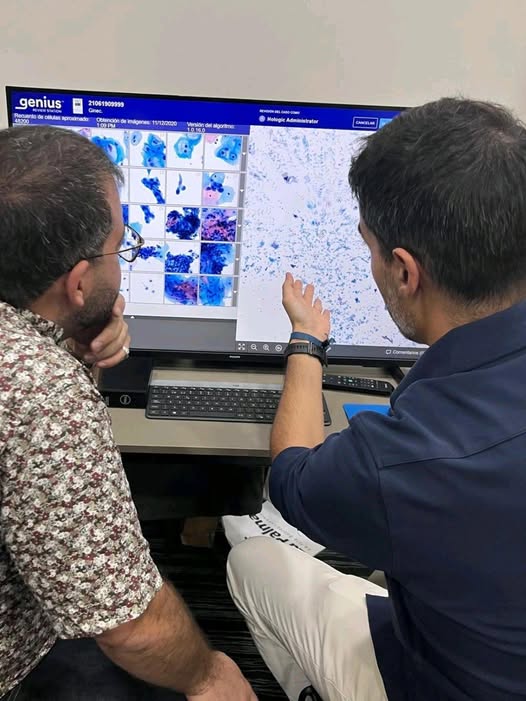GYNECOLOGY DEPARTMENT
Colposcopy
During a colposcopy, a board-certified OB/GYN closely examines the cervix, vagina and vulva for signs of disease using a special instrument called a colposcope. Generally, the colposcopy is recommended after an abnormal Pap smear test result. During the colposcopy, a small sample of tissue (also called a biopsy) is collected and sent to a lab to be tested for cancerous changes.
Colposcopy is considered to be very safe. However, rare adverse outcomes can occur. These risks may include heavy bleeding, infection and pelvic pain. The procedure generally takes less than 20 minutes and is considered mildly uncomfortable – not painful – by most patients.
Cystoscopy
A cystoscopy is a procedure that allows your OB/GYN to view your urinary tract. This includes the bladder, the urethra and openings to the uterus. This procedure is often done to identify and diagnose signs of cancer, infection, narrowing, blockage, structural issues, and/or bleeding. Tissue may also be removed during the procedure for biopsy.
During a cystoscopy a long, thin, flexible tube is inserted into the urethra and moved towards the bladder. During the procedure you will receive a sedative or anesthetic through an IV to ensure that you do not feel any pain.
Endometrial ablation
Endometrial ablation is a procedure performed to surgically remove the lining of the uterus. While the uterus normally sheds its lining during monthly menstrual periods, this does not always happen the way it should.
This minimally invasive procedure does not require any incision and can be done by using extreme cold, heated fluids, microwave energy or high-energy radiofrequencies. Talk to your doctor about potential effects on future pregnancies if you plan on becoming pregnant after this procedure is performed.
Hysteroscopy
During a hysteroscopy, an OB/GYN looks inside the uterus in order to diagnose and treat any causes of abnormal cramping or bleeding. Often, this procedure is performed after a woman begins menopause – or if she is experiencing difficulty conceiving or staying pregnant. Hysteroscopy can also be used to remove growths such as uterine fibroids or polyps. A lab is able to test any tissue removed for cancer or other medical concerns.
Intrauterine device (IUD) for birth control
Many women find certain forms of birth control to be unreliable and even frustrating to use. In some cases, those women are good candidates for an IUD because it is long-acting and is also reversible. While you should talk to your doctor about the different types, an IUD is usually a small, t-shaped plastic device that is wrapped in copper or contains hormones that can prevent pregnancy.
An IUD is inserted and removed by a women’s physician. While a plastic string is tied to the end, most women report that neither they nor their partners are able to feel it.
LEEP excision of cervix
The LEEP (or Loop Electrosurgical Excision Procedure) is a treatment that is used to prevent cervical cancer. It may be performed after an abnormal Pap smear, colposcopy or some types of biopsy. In this procedure, a small electrical loop is used to remove abnormal cells from the cervix.
Newborn circumcision
The decision to circumcise a baby boy can be an important one. The women’s healthcare providers at Bayfront Health Medical Group are able to perform circumcisions for newborn boys.
Non-stress tests
Many OB/GYNs will use non-stress tests to assess a fetal heart rate and even contractions. This non-invasive test puts no stress on the baby when a mother who is past 28 weeks of gestation wears a belt for 20-30 minutes tracking the baby’s movements.
Non-surgical, permanent birth control options
When a woman decides she is certain that she does not want any future children, she may elect to undergo a sterilization procedure. While you have multiple options, talk to your doctor about the possibility of a non-surgical procedure that permanently closes the fallopian tubes.
Sub-dermal contraceptive implants
A sub-dermal contraceptive implant is another form of birth control that many women find easier to use than the birth control pill. This implant slowly releases hormones into the body for one to five years, and is considered highly reliable.
Urodynamic testing
For women with bladder problems, a urodynamic test assesses how the bladder and urethra are storing and releasing urine. This test is often used to diagnose and treat incontinence in women.

